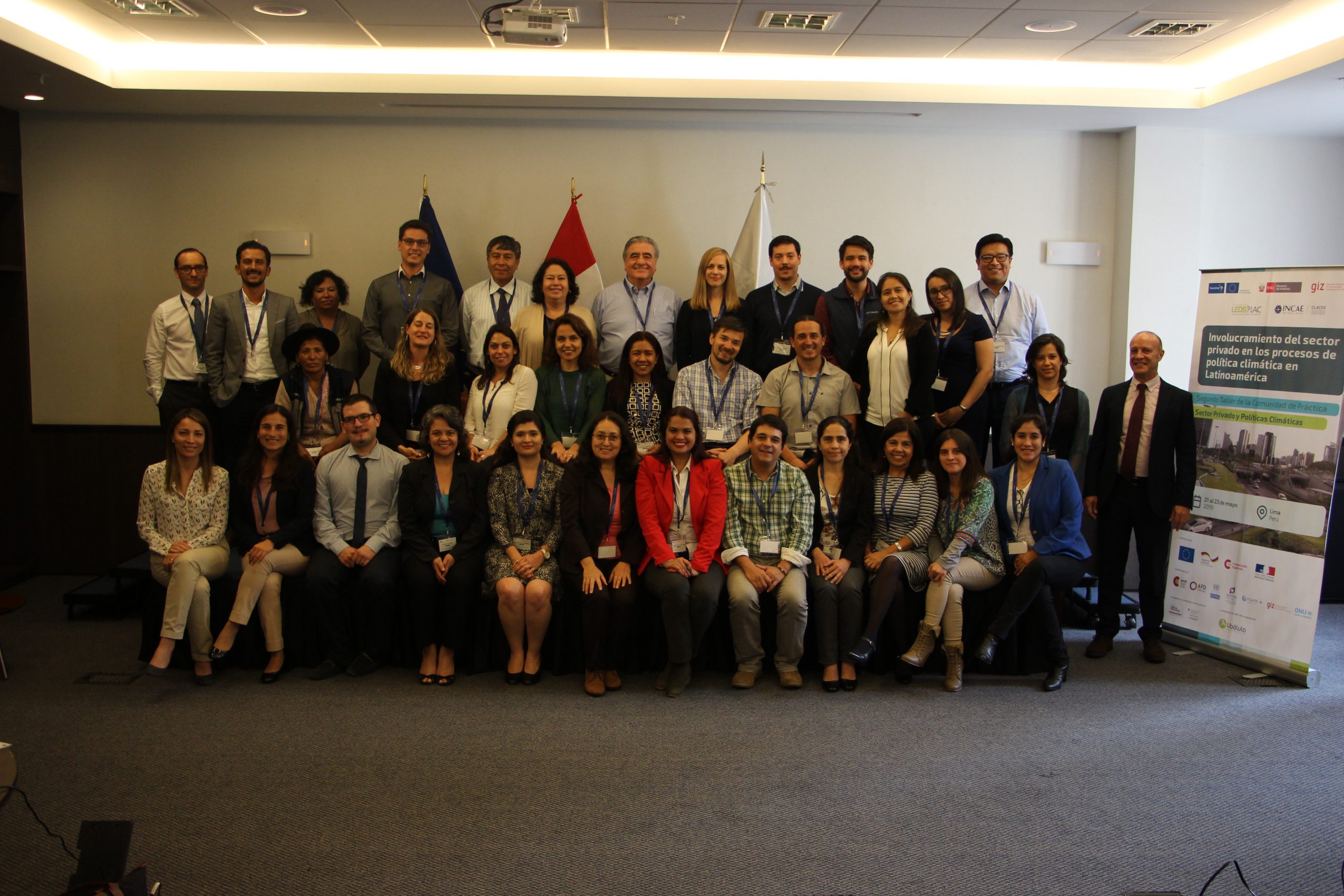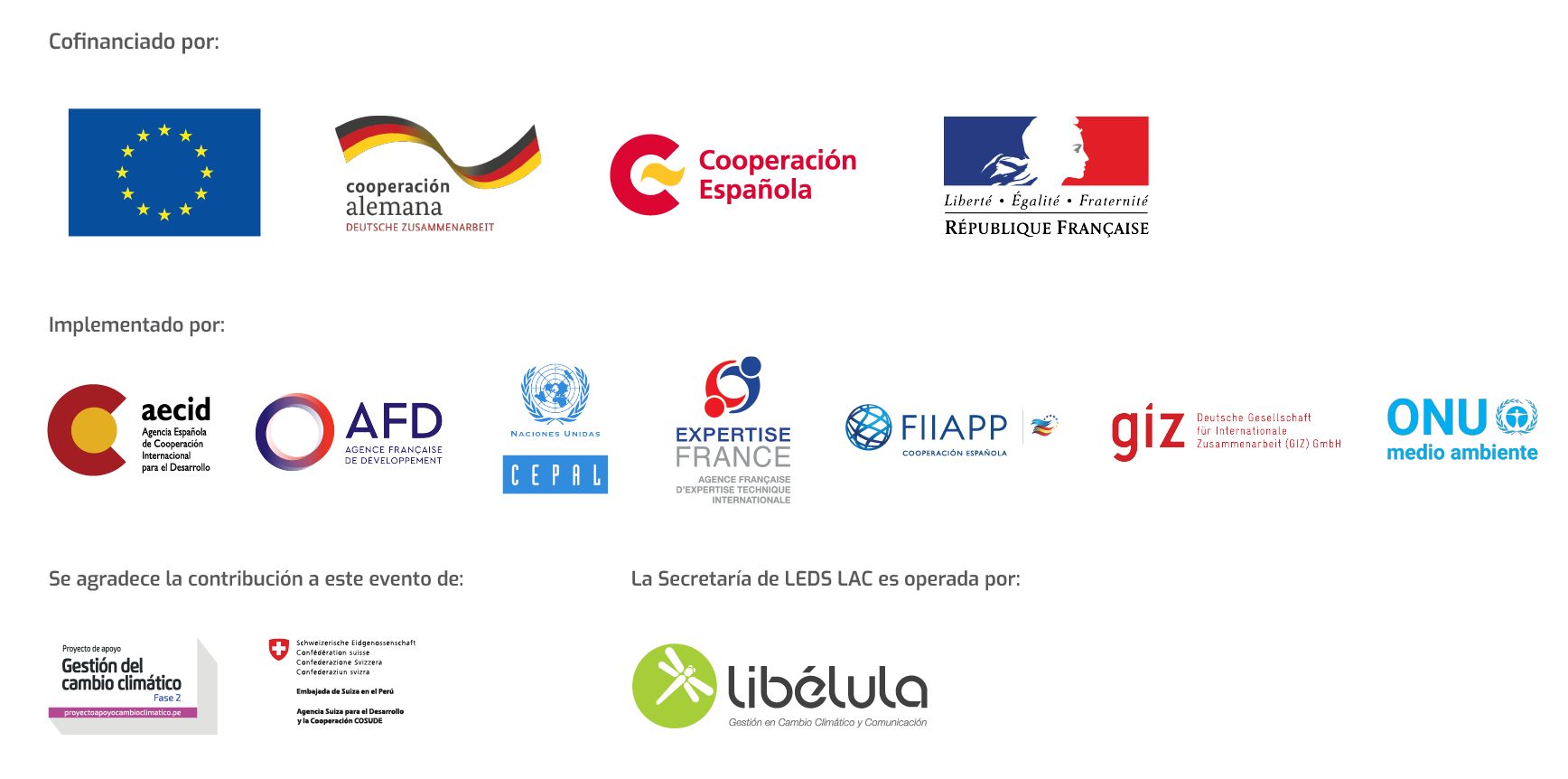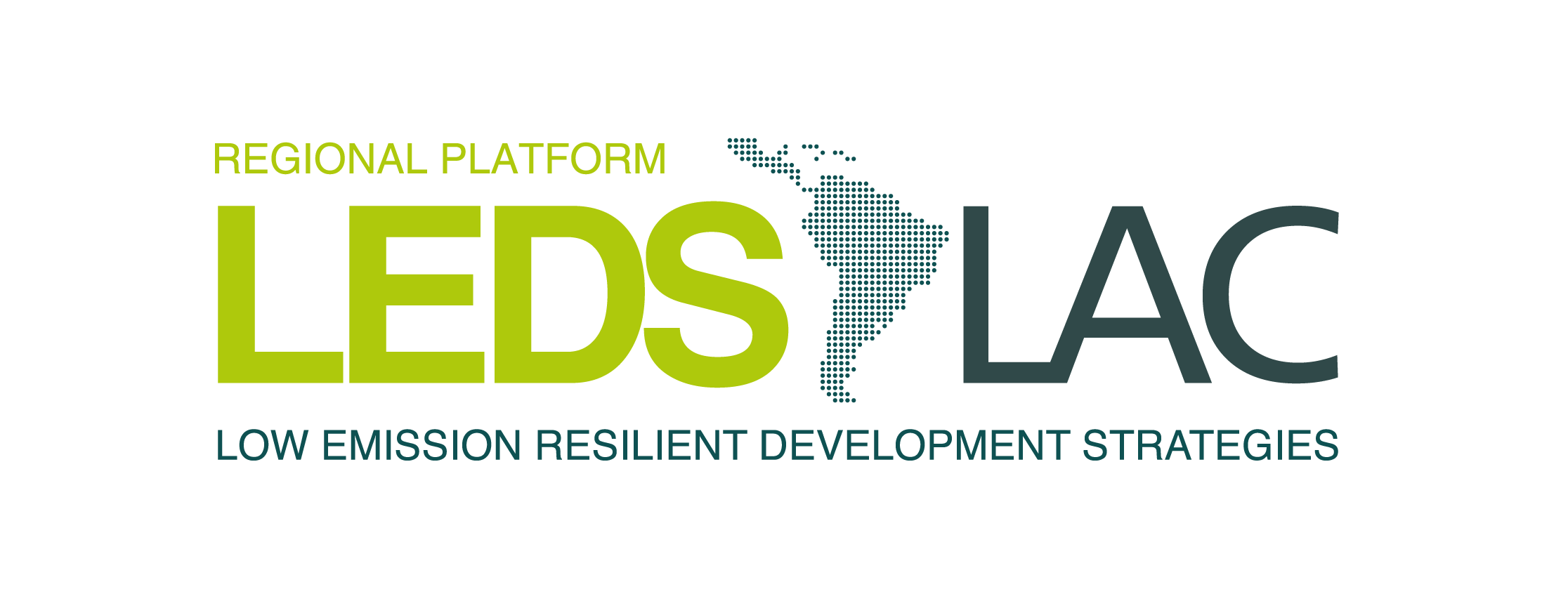Public and private sector representatives from eight Latin American and Caribbean countries meet to promote climate action

Lima.- Public and private sector representatives from eight Latin American and Caribbean countries are meeting in Lima to exchange experiences on the measures being adopted in each country to address climate change with the active participation of the private sector.
This Second Workshop of the Community of Practice on the involvement of the private sector in climate policy processes in Latin America", is being held from today until Thursday 23rd of this month in Lima, with the participation of more than 30 representatives from Bolivia, Chile, Costa Rica, El Salvador, Honduras, Mexico, Uruguay and Peru, which are part of the LEDS LAC Platform and the Program. EUROCLIMA+financed by the European Union.
The objective of this event is to contribute to the development and consolidation of mechanisms to articulate the participation of the private sector in the formulation and implementation of climate policies, especially the Nationally Determined Contributions (NDC), seeking that countries contribute to the global goal of reducing greenhouse gas emissions.
During the inauguration, the Vice Minister of Strategic Development of Natural Resources of the Ministry of Environment (Minam), Gabriel Quijandría, highlighted the role of the private sector in meeting the ambition of countries to address climate change. "Spaces like this are fundamental to generate confidence among the actors involved in the management of climate change. It also helps to find solutions and how much we will contribute from our position," he said.
On the other hand, the Director of Climate Change Adaptation and Desertification of the MinamCristina Rodríguez, said that in Peru a key process for the institutionalization of the NDCs has been the design and implementation of the "Let's Dialogue on the NDCs", which will be fundamental for the construction of a shared medium and long-term vision on the incorporation of climate change into sectoral policies and at the regional and local levels.
He said that the country is committed to the objectives of the Paris Agreement, through its NDCs. He added that, within this context, the participatory process known as "Dialoguemos" is the Peruvian strategy to ensure this permanent interaction between stakeholders, "generating viable alliances and agreements, thus creating legitimacy and sustainability for public climate policy processes."
From October 2017 to date, a total of 46 Dialogues on NDCs have been held at the national level, bringing together more than 1 500 stakeholders, including the public sector, business associations, companies, producers, cooperation agencies, NGOs, research centers and indigenous peoples.
In a panel with the participation of representatives of guilds and associations from the business sector, among them the National Society of Industries, CONFIEP, Peru 2021, L+1the Responsible Investment Program (RIP) and the Cement Producers AssociationPeru's experiences and progress in the participation of the private sector in climate policy processes were highlighted. Among other issues, it was highlighted that the private sector has grown in Peru through business associations, and that this sector has been participating in spaces where public policy is being built.
During the event, the important role played by the private sector in the implementation of countries' NDCs was highlighted, and it was mentioned that Sustainable Development Goal 13 (Climate Action) is the first priority worldwide for the 250 most important companies in the world (source: Survey World Business Council, April 2019).
Data
- The Program EUROCLIMA+through the German Cooperation Agency (GIZ), in collaboration with the Secretariat of the Regional Platform LEDS LAC and the Latin American Center for Competitiveness and Sustainable Development of INCAE Business School launched in mid-2018 the Community of Practice on Engaging the Private Sector in Climate Policy Processes in Latin America, which involves teams made up of representatives from public and private organizations from nine countries that are part of EUROCLIMA+.
Streaming:
- Panel on Peru's experiences and progress in the participation of the private sector in climate policy processes
[fusion_builder_container hundred_percent="yes" overflow="visible"][fusion_builder_row][fusion_builder_column type="1_1″ background_position="left top" background_color="" border_size="" border_color="" border_style="solid" spacing="yes" background_image="" background_repeat="no-repeat" padding="" margin_top="0px" margin_bottom="0px" class="" id="" animation_type="" animation_speed="0.3″ animation_direction="left" hide_on_mobile="no" center_content="no" min_height="none"]http://www.facebook.com/LEDSLAC/videos/428249514628913
Photos:
Organizers and allies:


